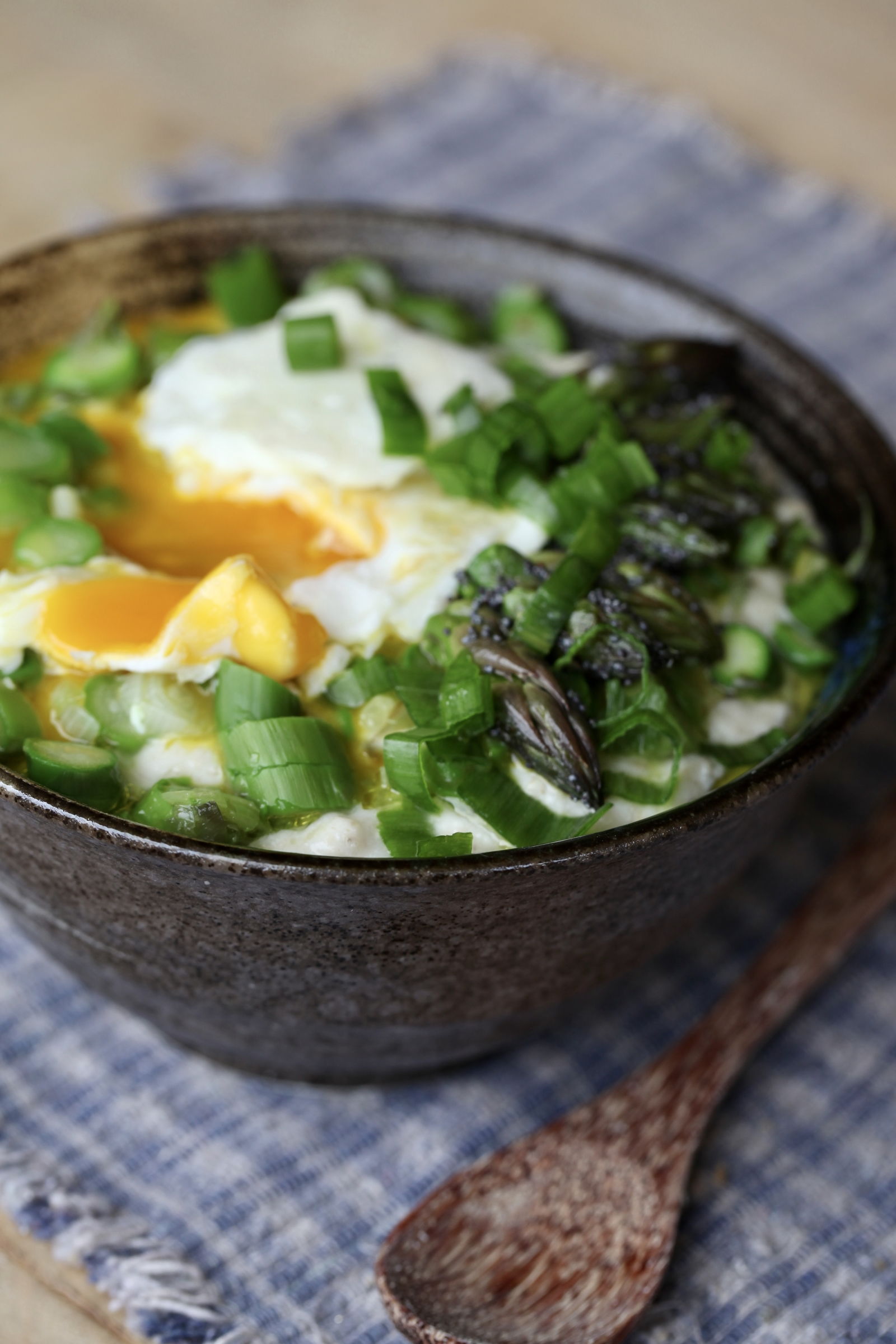There are foods whose taste is peculiar and evokes very specific sensations. One of these is undoubtedly the asparagus! Sweet and delicate, the flavor of asparagus always calls for a sense of well-being.
Not surprisingly, asparagus is rich in beneficial properties for our health, as well as being a pleasant and interesting ingredient in the kitchen. Before using it to prepare an excellent single dish, the "protein porridge with asparagus and poached egg", let's find out why it is so important to include asparagus in our diet, but also when it is appropriate to avoid them.
History, curiosity, and properties of asparagus

Belonging to the Liliaceae family, the asparagus plant was cultivated as early as 2000 years ago.
The term asparagus (from the Greek aspharagos) is used to identify both the shoots of the Asparagus Officinalis plant and the plant itself.
There are different types of asparagus (common, bitter, wild, white, marine, thorny, of Pastor) that are mainly distinguished by size, appearance, flavor, and cultivation. However, the differences in chemical composition are irrelevant. Raw asparagus bring about 20kcal per 100g, and are composed of:
- water for 90%,
- about 3g of carbohydrates from sugars,
- about 3.3g of protein,
- 2-3g of dietary fiber (inulin, precious prebiotic source),
- irrelevant traces of lipids,
- various vitamins (in particular vitamin A, beta-carotene, lutein + zeaxanthin, folate, vitamin K, choline and vitamin C)
- minerals (especially potassium, sodium, phosphorus, calcium, and fluorine).
Asparagus contains "asparagine", an amino acid useful for the synthesis and metabolism of proteins, and inulin, a prebiotic that is assimilated only in the large intestine. The presence of inulin characterizes its laxative property and hence its use to contrast constipation, constipation, and abdominal swelling. Their composition makes asparagus food with diuretic, laxative, purifying, and dietetic properties. Maruzzella and Freundlich (Maruzzella J. C. and Freundlich M., J.A.Ph.A., 48. 356, 1959) have found that extracts of Asparagus seeds have strong antibiotic activity. Regarding the diuretic properties of asparagus, Crouzel (CROUZEL, Gn. Des Hip. Dt Toulouse. 1898) stated that asparagus causes an increase in the number of urinations rather than affecting the increase in the quantity of secreted urine. irritant action on the renal epithelium.
The characteristic smell of urine, after eating asparagus, is due to some components containing important quantities of sulfur, which are quickly metabolized and expelled.
Contraindications of asparagus
It is important to remember that asparagus, but especially asparagus preparations, are not recommended if cystitis and renal inflammatory states are present, due to their irritating action on the renal secretory elements.
Recipes with asparagus
Asparagus can be eaten both raw (in salads, smoothies) and cooked (steamed, grilled, stewed, boiled, and boiled for the preparation of soups and stews). It is advisable to prefer its consumption raw to leave the nutritional properties unchanged, or in any case to favor short cooking.
One of the most famous combinations sees them next to eggs. Just like in the recipe that you will discover below.
Protein porridge recipe with asparagus and poached egg

Protagonists of our salty porridge, asparagus will increase the satiating power of this unique dish. This recipe is perfect for those who follow a weight loss diet, but also for all those who have a healthy lifestyle and take care of their well-being and health.
Watch the video with all the steps of the recipe!
Ingredients
- 200ml of egg white
- 300ml of water
- 1 shallot
- 1 egg
- 150g of asparagus
- 100g oat flakes
- 2 tablespoons parmesan
- q.s. salt
- optional:
- 5g raw extra virgin olive oil
- Chia seeds
Prep
- Cut the hard part of the asparagus. Wash the asparagus, cut them into thin slices, and leave the tips aside.
- Cut 1 fresh shallot or 1 fresh red onion. Cook for a few minutes (3-4 minutes) in plenty of water. Drain the vegetables and cook the oat flakes in the same cooking water. Season with salt, add pepper and fresh chives.
- Stir continuously to prevent sticking to the bottom of the pan. Add the egg white and Parmesan cheese. Continue stirring until the porridge has reached a creamy and compact consistency and is therefore ready.
- Meanwhile, in a non-stick pan, sauté the asparagus tips with 2g of ghee butter or coconut oil and a few chia seeds. (This step is optional, but recommended to give a crunchy note to the recipe).
- Last step, the poached egg. Boil 1L of water and 10ml of vinegar, before boiling create a vortex making circular movements and clockwise, in the center break an egg. As soon as the egg white has tied to the yolk, remove the egg and immerse it in cold water.
- Assemble all the ingredients and enjoy your porridge!
Macros
C 58g P 44g F 15g
Conclusions
Protein porridge with asparagus and the poached egg has high satiating power, it is perfect to be enjoyed hot or cold, and makes the most of all the properties of asparagus, which we have seen to be multiple! Increasing the consumption of this wonderful vegetable is a gift that we can do for ourselves!
